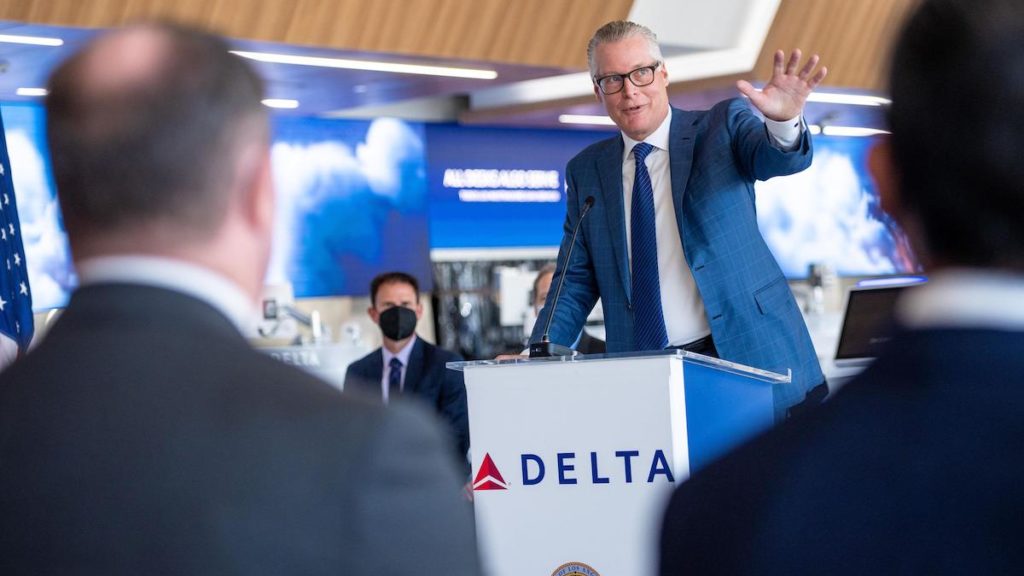Delta Air Lines doesn’t quite think the pandemic is behind it, but it increasingly thinks the traveling public will treat Covid-19 as a recurring seasonal disease.
Bastian pointed to credit card data from both Delta’s co-branded credit card with American Express and from increased spending on hotels and rental cars.
are sitting on $2.5 trillion more in savings than they had before the pandemic, due largely to decreased spending on travel, restaurants, and other services curtailed by quarantines and lockdowns, data from the Federal Reserve Bank show.
Delta has bet heavily on the front of the aircraft, investing in new cabins on much of its fleet of aircraft, including a new premium-economy cabin.
Delta reported its March domestic premium revenue was 100 percent of 2019 levels.
is depressing demand for transatlantic travel, but Bastian said Delta is “encouraged” by signs that Washington may lift the requirement soon.
This is changing, Bastian said, as a survey of Delta’s corporate clients revealed that 90 percent plan to travel more in the second quarter.
“We expect that heavily restricted regions, such as China and Japan, will continue to put pressure on overall Pacific unit revenues until borders fully reopen,” Hauenstein said.
By this summer, Delta will operate 84 percent of its 2019 capacity — or number of seats its flies — and is on a hiring spree in order to staff its operations.
“Pilots have a training pipeline and it will take some time before pilots are fully in category and where we want them positioned; it’ll probably take another year or two,” he said.
Delta is raising all employees’ pay by 4 percent in May.
The first quarter was split into two halves: The first, with demand dampened by the Omicron variant; and the second, a dam break of pent-up demand for travel.
The Ukraine war has caused oil prices to rise, but Delta so far has not faced any pushback from passing on its increased costs to consumers.
Cargo revenue of $289 million was 51 percent higher than in 2019 and is expected to rise in the second quarter as companies scramble to restock after lockdowns in China disrupted the supply chain.
